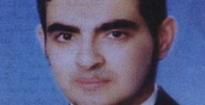CIA Failed to Vet Fake Informant
The CIA on Tuesday acknowledged "missteps" and "shortcomings" that allowed a would-be informant to enter a U.S. base in Afghanistan and blow himself up on December 30, killing seven CIA officers.
The mistakes included failing to act on warnings about the assailant, a double-agent from Jordanian intelligence, or take security precautions that may have prevented the second most deadly attack in agency history, according to an internal investigation.
Suicide bomber Humam Khalil Abu-Mulal al-Balawi tricked the CIA into believing he could be a useful tool in the battle against al Qaeda, and was invited inside a well-fortified U.S. compound in Khost province in southeast Afghanistan, near the border with Pakistan.
"He had confirmed access within extremist circles, making a covert relationship with him -- if he was acting in good faith -- potentially very productive," CIA Director Leon Panetta said in note to agency employees. "But he had not rejected his terrorist roots. He was, in fact, a brutal murderer."
Panetta cited mistakes by the agency revealed in the investigation, notably the CIA's failure to properly vet Balawi, who made a suicide video released after his death calling on militants to launch more attacks.
But they also included critical security lapses and communication breakdowns.
One of the biggest mistakes may have been the failure of a CIA officer in Jordan to pass along concerns raised by Jordanian intelligence about Balawi's ties to al Qaeda.
"The Jordanians raised concerns about Balawi," said a U.S. intelligence official.
"Those concerns were weighed against the information he had already provided, and his potential to lead us to the most senior figures in al Qaeda."
Click here to read more.


